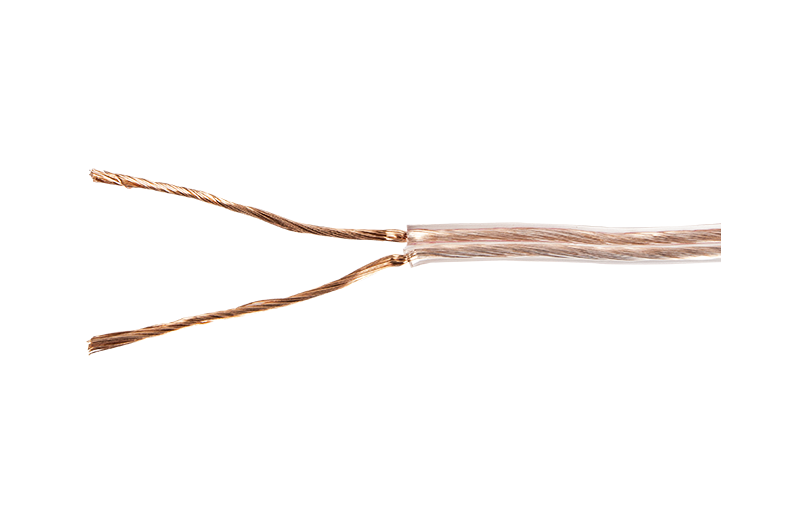Summary:When it comes to creating an exceptional audio experience, the specifications of low-voltage speaker cable wires play a crucial role, particularly the
When it comes to creating an exceptional audio experience, the specifications of low-voltage speaker cable wires play a crucial role, particularly the gauge. The gauge of the cable wire determines its thickness and, ultimately, its ability to carry audio signals over varying distances without compromising sound quality. One of the first considerations is the distance between the amplifier or receiver and the speakers. For short runs—typically less than 50 feet—using 16-gauge wire is often sufficient for most residential audio applications. This gauge strikes a balance between flexibility and conductivity, making it ideal for connecting smaller speakers or setups where space is tight. However, if you're dealing with longer distances, say 50 feet or more, the requirements shift significantly. In these cases, opting for a thicker wire, such as 14-gauge or even 12-gauge, can help minimize the risk of signal loss and maintain the integrity of the audio performance. Thicker wires are better at carrying higher currents, which is essential for powerful audio systems.
Another essential specification to consider is the type of speaker being used. Different speakers have varying impedance ratings, typically 4, 6, or 8 ohms. This impedance affects how much current the cable needs to carry. For instance, if you are using 4-ohm speakers, you’ll want to ensure that your cable is adequately rated to handle the increased current flow. A thicker gauge will help prevent overheating and distortion, providing a cleaner sound and better overall performance. Additionally, the power rating of your amplifier or receiver can influence your choice of gauge. If you are connecting high-powered speakers to a high-wattage amplifier, a lower gauge number (meaning thicker wire) is generally the safer choice. This allows for efficient transmission of the audio signal while reducing the chances of overheating or damage to the cable.

Insulation is another factor that shouldn’t be overlooked when selecting low-voltage speaker cables. The quality and type of insulation can impact durability, especially in environments where cables may be exposed to moisture or extreme temperatures. For outdoor setups, choosing cables with weather-resistant insulation, such as PVC or rubber, ensures longevity and protects against potential damage. On the other hand, if the cables will be used in a controlled indoor environment, standard insulation should suffice. It’s also worth considering whether the cables will be installed in walls or ceilings. For in-wall installations, cables should meet fire safety regulations and have a CL2 or CL3 rating, which signifies they are suitable for residential applications without posing a fire risk.
Additionally, the construction of the wire itself can greatly influence performance. Low-voltage speaker cable wires are generally available in stranded or solid wire configurations. Stranded wire offers more flexibility, making it easier to work with in tight spaces, while solid wire is typically more durable but less flexible. Each type has its advantages, and your choice may depend on the specific installation requirements. Furthermore, the choice of connectors can also affect the overall performance of your audio system. Using quality connectors, such as banana plugs or spade connectors, ensures secure connections and reduces the chances of signal loss due to poor contact.
The right gauge for low-voltage speaker cables hinges on a combination of factors, including distance, speaker impedance, power rating, insulation, wire construction, and connectors. By carefully considering these specifications, you can ensure that your audio system delivers the clarity and power needed for an outstanding listening experience. Choosing the appropriate gauge and materials not only enhances sound quality but also ensures the durability and longevity of your audio setup, making it a worthwhile investment for any audio enthusiast. Whether you’re setting up a home theater or designing a professional sound system, taking the time to select the right low-voltage speaker cables will pay dividends in performance and reliability.
